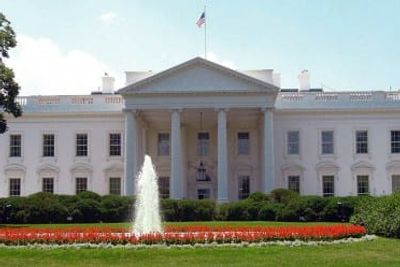A Pentagon study released on Tuesday argues that gay troops would cause little to no disruption if allowed to serve openly, according to the According Press.
The study concludes that repeal would have "some limited and isolated disruption to unit cohesion and retention," but long-term effects would be minimal.
Seventy percent of U.S. troops surveyed predicted that gay and lesbians serving openly in the military would have a 'positive affect.'
According to the assessment, 92% of troops who have served with someone they believed to be gay thought that their unit's ability to work together was either very good, good, or neither good nor poor.
Top administration and military officials are briefing the Senate on Tuesday afternoon on the results of the Pentagon review.
Major military leaders---including supporters Defense Secretary Robert Gates and Adm. Mike Mullen, chairman of the Joint Chiefs of Staff---will be among those speaking about the policy later this week before the Senate Armed Services Committee.
This year's Defense Authorization Act would be the vehicle for repealing "don't ask, don't tell." The House of Representatives has voted to overturn the policy as part of a broader defense policy bill. Senate Republicans have blocked the measure in that chamber because they say not enough time has been allowed for debate on unrelated provisions in the bill. This decision has delayed the passing of a defense spending bill to fund the military. Senate Majority Leader Harry Reid, intends to seek a vote this month on the bill, which will also include repeal of "don't ask, don't tell."
Republicans, led by Sen. John McCain, have mostly opposed repealing the law, claiming that the repeal is politically driven and dangerous at a time of two wars. The heads of the four military branches have either directly opposed or expressed concern about the policy change, at least until the survey results were complete.
The survey is based on responses by some 115,000 troops and 44,200 military spouses to more than a half million questionnaires distributed last summer. The study group, led by Pentagon General Counsel Jeh Johnson and Army General Carter Ham, also visited various military bases and held town hall-style meetings with service members.
The authors outlined a number of recommendations for effectively handling the repeal, including new guidelines for conduct among service members. They will also recommend that those previously removed from the military under "don't ask, don't tell" be allowed to reapply to rejoin the military.
